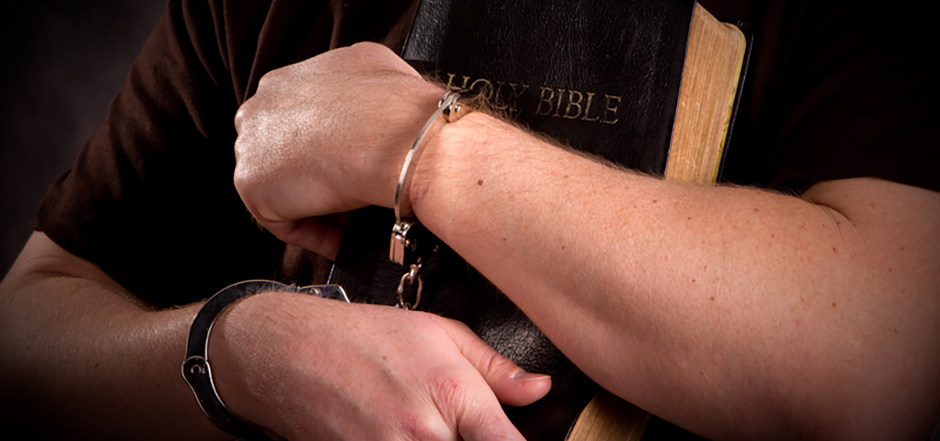Christianity Is Countercultural, Part 1
Countercultural. What comes to mind when you hear that word? A student protest in some far-off country? A new trend that, in one way or several, deviates from the norm?
Today more than ever, as Christians, we’re having to think about the fact that the things we affirm, say and believer are, in fact, counter to the narrative in our culture. Not neutral to, but counter to that narrative. In this series of posts, we’ll look at the ways Christianity is countercultural.
Because Everyone Matters to God
First, Christianity is countercultural because we say things like, “Everyone is made in the image of God, and therefore, all people matter, no matter who they are.”
We say that it is the character of our King, Jesus, to care, especially for the weak, for the poor, for people who don’t look like us in any way. That in the sight of God, everyone matters. And that, in fact, we will give financially and by volunteering to make sure the people who are the most ignored in our culture are, in fact, the most deeply cared for.
If you read what Paul describes in 1 Corinthians 12 as the function of the body of Christ, he even goes so far as to say, “and our weakest members receive the greatest honor” (see v. 23). That’s very different than what our culture tells us: “Might makes right, and therefore you can say anything you want just so that the end justifies the means.” They’re distinctively different narratives.
What does it mean to be distinctly Christian in our culture today? And how do we find a way to live that out together? How do we support one another so we can find a way to live out this common life, letting others know we serve a different King who asks different things of us? And how do we find a way to do that together?
To celebrate and call Jesus the King of kings and the Lord of lords means all of us, as well as all of those who are in authority, are subject to his judgments. We sing, “Rejoice in glorious hope; the Lord our Judge shall come.”
In other words, we believe we are accountable to God in a profoundly personal way, not merely as individuals, but as a society, as a culture and even as a nation. This means when we as a nation decide to hold up values that are contrary to the Scriptures, we are, in fact, liable when it comes time to face God as our Judge.
Because It Is God’s Nature to Forgive
But there’s more to it than that, because it is the very nature of this King to forgive. That’s not only countercultural but in some ways a surprise. When we read Jeremiah 23, we see the words “woe to the shepherds” (v. 1).
Now, Jeremiah is really talking about political leaders. And after giving a list of very specific woes, Jeremiah promises to raise up something new: he (God) will come and be our Shepherd, and raise up one, and the name for this one he is raising up is “The Lord our Righteousness” (v. 6).
What this says is that the Lord, the Judge, the God of all creation, the Maker of heaven and earth, the one who holds all of humanity in his hands, is the one whose essence is to impart, to give. And he gives us the capacity to receive his goodness. So the Lord is not just “the Lord, the righteous one” but “the Lord our righteousness.” In other words, he’s doing something inside of us, claiming and calling us as his own as the one who is the King of all kings and the Lord of all lords.
But the message of Jesus also includes the cross (see Luke 23:33-43). The height of kingly power, the deepest expression of what it means for Jesus to be the King of all kings and the Lord of all lords is not when he is exalted in glory. No. It is when he literally, before his persecutors, offers his dying prayer, saying, “Father, forgive them, for they do not know what they do.”
It is that prayer, and that all that he did in his death and resurrection that makes “the Lord our righteousness” possible and calls us to a different kind of life, where, in the face of oppression, we stand clearly for who we are and stand beside those being oppressed. And at the same time (and this is the hard part) we say, “Father, forgive them, for they know not what they do.”
We’ll continue this study in my next post.
In what ways do you see Christianity as countercultural? Share this blog and your response on Twitter. Please include my username, @revgregbrewer.
(This post is an adaption of Bishop Brewer’s sermon on November 20, 2016, at St. Mary’s Episcopal Church, Belleview, Florida).
Unless otherwise noted, Scripture quotations are from the New Revised Standard Version Bible, copyright © 1989 the Division of Christian Education of the National Council of the Churches of Christ in the United States of America. Used by permission. All rights reserved.

